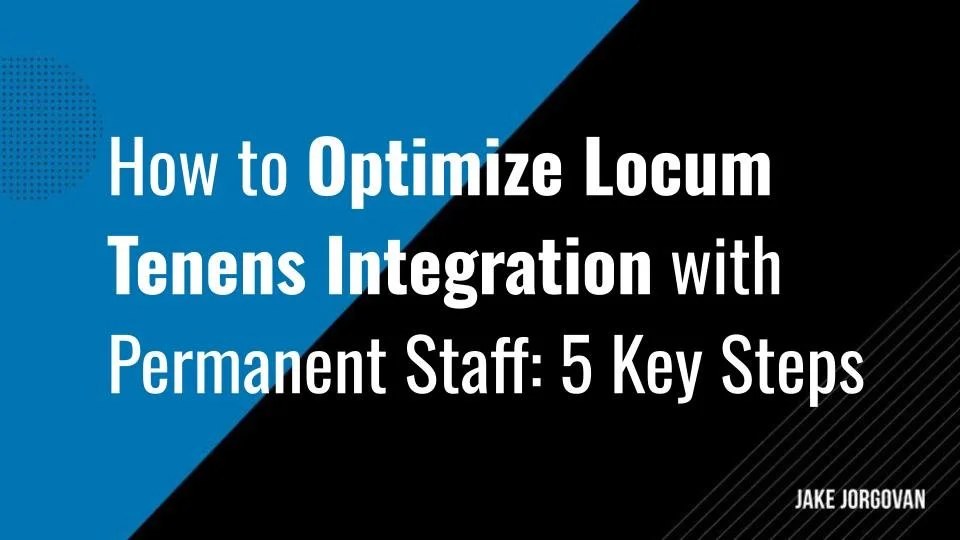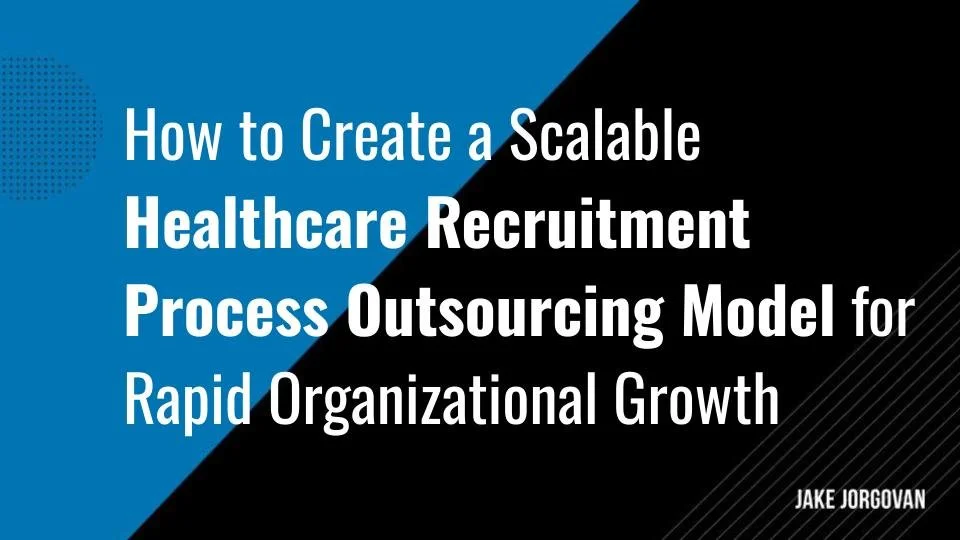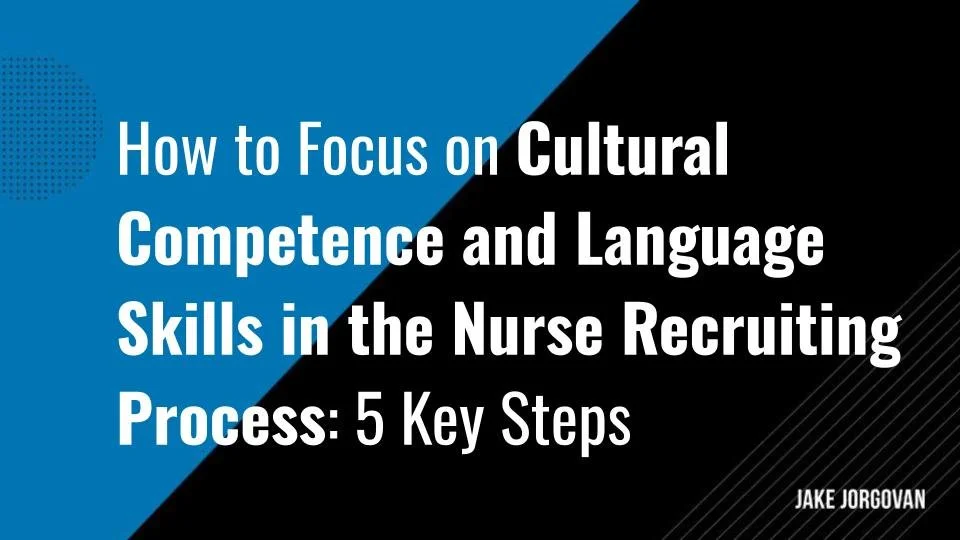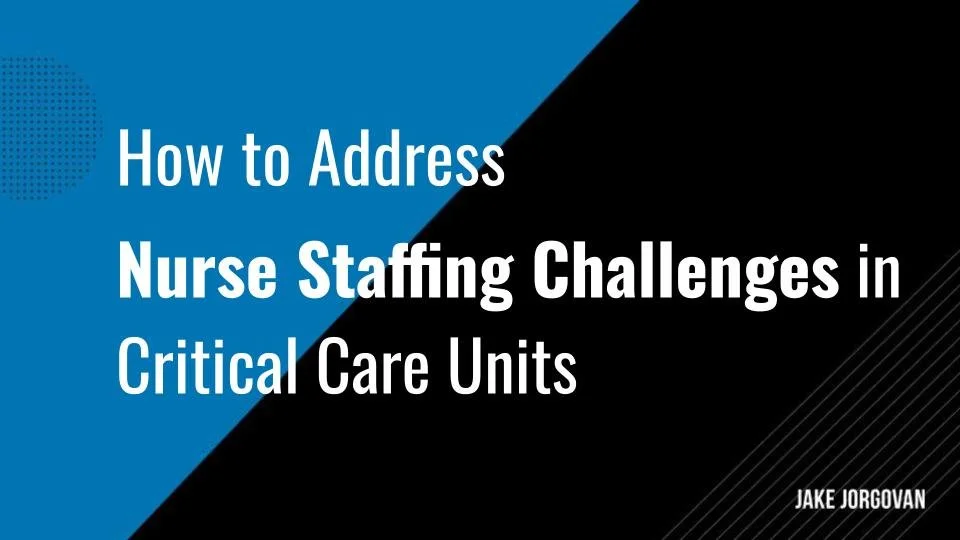How to Negotiate Favorable Contract Terms with Nurse Staffing Agencies
Negotiating favorable contract terms with nurse staffing agencies is critical for ensuring quality care and financial stability.
Whether you're a healthcare administrator or a facility manager, mastering these negotiation tactics can significantly impact your operations.
In this guide, we'll explore strategies that empower you to secure the best possible terms.
Ready to elevate your contracting process?
Let's get started.
5 Steps for Negotiating Contracts with Nurse Staffing Agencies
1) Conduct Thorough Market Research to Understand Prevailing Rates and Demand Trends
Understanding market rates and demand trends is about knowing the numbers to gain negotiation leverage. Mastering this knowledge gives you the upper hand and ensures your contracts are competitive and aligned with current industry conditions. This approach positions you to negotiate from a place of confidence and authority. Here’s how to do it:
Start with Local Market Research: Gather data on local market conditions, focusing on what similar agencies in your region are offering. This includes hourly rates, benefits packages, and contract lengths. Be meticulous in comparing these across multiple sources to form a well-rounded understanding.
Analyze Industry Trends: Go beyond local data to examine broader industry trends. Look at national statistics on nurse staffing rates, demand projections, and any upcoming changes in healthcare regulations that might affect the market. Knowing the trajectory of these trends helps you anticipate shifts and adjust your strategies accordingly.
Leverage Competitive Intelligence: Gather intelligence on your competitors. Understand who they are contracting with, their pricing strategies, and the quality of their staffing. Use this information to differentiate your offers, highlighting your unique value proposition in your negotiations.
Consult with Industry Experts: Engage with industry consultants, analysts, or even seasoned professionals within your network. Their insights can provide a deeper understanding of the market's nuances, particularly regarding emerging demands or undervalued opportunities that aren't immediately obvious.
Regularly Update Your Data: Market conditions fluctuate. Ensure that your data is current and reflective of the latest trends. Regular updates allow you to respond swiftly to any changes and maintain your competitive edge.
Insider Tip:
We recommend building relationships with local healthcare associations and attending relevant conferences. This provides early access to shifts in market demand and rates, which you can use to adjust your negotiation strategy before your competitors.
2) Precisely Outline Contract Terms, Including Scope of Work, Deliverables, and Performance Metrics
Defining contract terms with precision directly impacts the quality of the services you receive. It sets clear expectations, reduces misunderstandings, and aligns both parties toward shared goals. When done correctly, this foundation ensures a smooth partnership and successful outcomes. Here’s how to get started:
Outline the Scope of Work: Specify the duties, responsibilities, and qualifications required for each nursing position. Detail the expected working hours, shifts, and any specific skills needed. This clarity helps avoid any ambiguity that could lead to staffing mismatches or unmet expectations.
Set Performance Metrics: Define the key performance indicators (KPIs) that will be used to evaluate the staffing agency's performance. These metrics could include fill rates, time-to-fill, and employee retention rates. These in writing provide a measurable way to assess whether the agency meets your standards.
Detail Compliance Requirements: Ensure the contract includes a comprehensive list of legal and regulatory requirements the agency must adhere to. This should cover licensing, certifications, background checks, and specific health and safety protocols. Precision in this area protects you from potential liabilities.
Include Flexibility Clauses: Build in clauses that allow for adjustments in staffing levels or scope based on your organization's changing needs. Whether it's seasonal demand or an unexpected surge, the flexibility to adapt is crucial for maintaining optimal operations without renegotiating the entire contract.
Specify Termination Conditions: Clearly state the conditions under which either party can terminate the contract. Include notice periods, penalties, and any other relevant details. This ensures that both parties clearly understand the exit strategy, minimizing disruption if the partnership needs to end.
Insider Tip:
We suggest negotiating an early performance review clause. This will allow both parties to assess the contract's initial months and make adjustments before any issues escalate.
3) Negotiate Flexible Scheduling and Staffing Models to Accommodate Fluctuating Needs
Flexibility in scheduling and staffing models is essential in today’s unpredictable healthcare environment. It allows you to respond to sudden changes in patient volume, staffing shortages, and other operational challenges without compromising care quality. Structuring your contracts to accommodate this flexibility empowers you to maintain efficiency and control costs. Follow these steps to implement this strategy:
Negotiate Variable Shift Options: Secure the ability to adjust shift lengths and times as needed. Whether extending shifts during peak hours or shortening them during lulls, this flexibility ensures you can more effectively match staffing levels with patient needs.
Incorporate PRN (Pro Re Nata) Staffing: Include "as-needed" staffing provisions. PRN staffing allows you to bring in nurses on short notice to cover unexpected absences or surges in patient demand, ensuring continuous coverage without needing permanent hires.
Allow for Seasonal Adjustments: Specify terms that enable you to increase or decrease staffing levels based on seasonal fluctuations in patient volume. This is particularly useful for healthcare facilities that experience predictable busy periods, such as flu season or holiday times.
Include On-Call Availability: Ensure the contract includes clauses for on-call staffing. On-call nurses can be a critical resource during emergencies or sudden increases in patient load, allowing for immediate response without the need for extensive overtime.
Agree on a Staffing Review Process: Establish regular intervals for reviewing staffing needs and contract terms. This ensures both parties can reassess and make necessary adjustments, maintaining alignment with your evolving requirements.
Insider Tip:
We advise negotiating a tiered pricing model for flexible staffing. This structure allows you to control costs by paying standard rates for scheduled shifts and only higher rates when you require last-minute or on-call staffing. This strategy optimizes your budget while ensuring you have the necessary coverage when it matters most.
4) Ensure All Contract Terms Comply with Industry Regulations and Legal Standards
Ensuring your contract complies with legal and regulatory standards is a critical safeguard for your organization. Non-compliance can lead to severe penalties, legal disputes, and damage to your reputation. Meticulously addressing these requirements allows you to protect your operation and uphold the quality of care provided. Here’s how you can do it:
Verify Licensing and Certification Requirements: Confirm that all nurses provided by the staffing agency hold the licenses and certifications required by your state and federal regulations. Specify these credentials in the contract, and regular updates from the agency are required to ensure ongoing compliance.
Include Background Check Mandates: Mandate thorough background checks for all nursing staff. This should include criminal history, employment verification, and drug screening. Specify that the staffing agency is responsible for conducting these checks and providing documentation upon request.
Outline Compliance with Healthcare Standards: Clearly state that all provided staff must adhere to your facility’s specific healthcare standards, including patient care protocols, HIPAA compliance, and any other relevant regulations. This ensures that agency staff integrate seamlessly with your internal teams without compromising care quality.
Require Proof of Ongoing Training: Ensure that the contract requires the staffing agency to provide ongoing training for their nurses, particularly in patient safety, infection control, and emergency procedures. This training should meet both regulatory requirements and your facility’s standards.
Establish a Compliance Audit Process: Include a clause allowing periodic audits of the staffing agency’s compliance with all outlined requirements. This ensures continuous adherence to regulations and provides an opportunity to address any issues before they escalate.
Insider Tip:
We suggest incorporating a clause that holds the staffing agency financially responsible for any fines or penalties resulting from non-compliance. This adds a layer of protection for your facility and incentivizes the agency to maintain the highest standards of regulatory adherence.
5) Establish Transparent Communication Protocols to Address Issues Promptly and Maintain Strong Relationships
Communication underpins the success of any contract, particularly in the dynamic environment of nurse staffing. Establishing clear communication channels ensures that all parties remain aligned, minimizes misunderstandings, and prevents issues from escalating. The strength of your collaboration depends on how well you manage this critical aspect. Follow these steps to get started:
Designate Primary Points of Contact: Identify and assign specific individuals from your organization and the staffing agency as primary contacts. These individuals should be responsible for day-to-day communication, addressing immediate concerns, and escalating issues when necessary. This clarity prevents confusion and ensures that information flows smoothly.
Set Up Regular Check-Ins: Schedule regular meetings or calls to review the contract’s progress, discuss any challenges, and make necessary adjustments. These check-ins should be documented, with action items clearly outlined and followed up on. Consistent communication keeps both parties proactive rather than reactive.
Establish Protocols for Issue Resolution: Define clear steps for addressing and resolving any issues that arise during the contract period. This should include timelines for response, escalation procedures, and a process for documenting and reviewing the resolution. A structured approach to problem-solving reduces downtime and keeps operations running smoothly.
Utilize Technology for Transparency: Implement a shared digital platform where both parties can track staffing schedules, performance metrics, and compliance documentation in real-time. Transparency through technology enhances collaboration and reduces the likelihood of miscommunication.
Document All Communication: Ensure that all significant communications, decisions, and changes are documented in writing. This creates a reliable reference point for both parties, reducing the risk of misunderstandings and protecting your interests if disputes arise.
Insider Tip:
We advise integrating a feedback loop into your communication process. Regularly solicit feedback from the agency on their experience working with your organization and offer constructive feedback in return. This mutual exchange of insights strengthens the partnership and facilitates continuous improvement.
Secure the Best Terms with Nurse Staffing Agencies
Mastering the art of negotiation with nurse staffing agencies is about securing the best care for your patients. The terms you agree to today will shape the future of your healthcare facility.
Are you prepared to make decisions that could impact your bottom line and patient outcomes?
Reflect on the strategies you've learned, and consider how they can be applied to your next negotiation.































